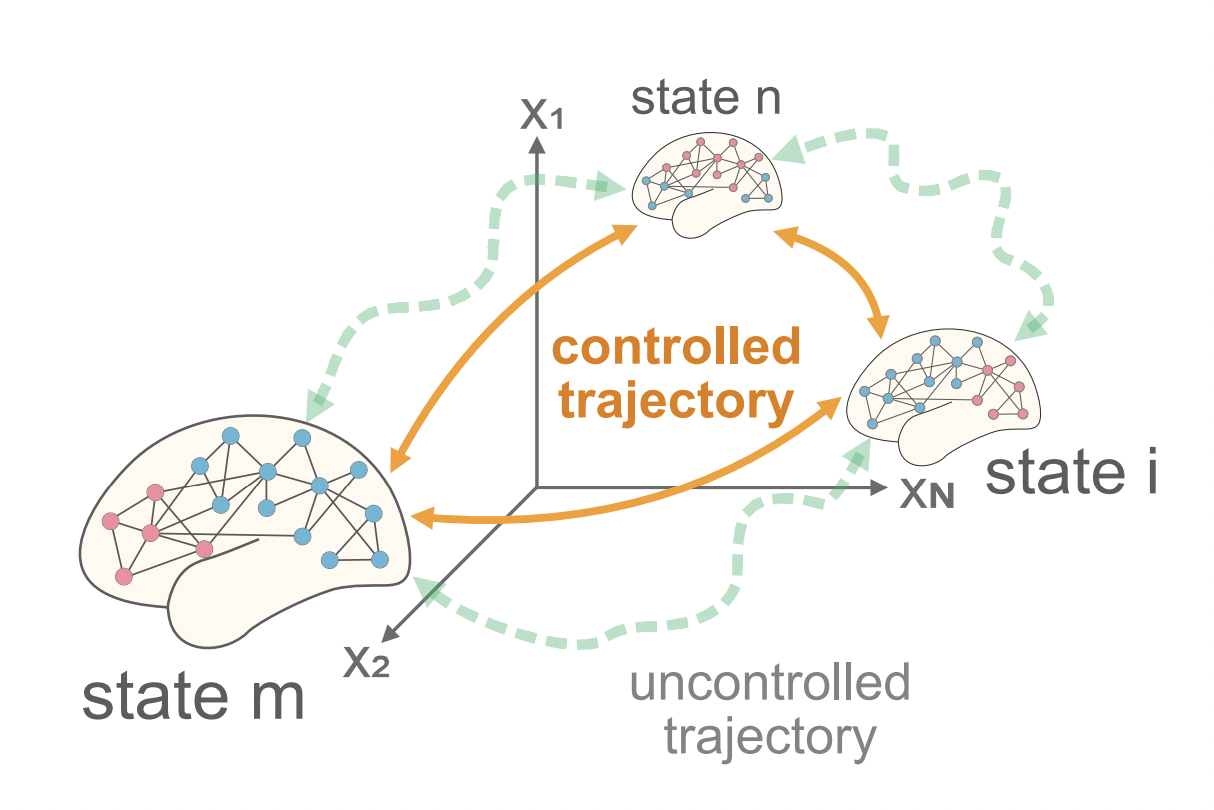Abstract
The human brain is a complex system with high metabolic demands and extensive connectivity that requires control to balance energy consumption and functional efficiency over time. How this control is manifested on a whole-brain scale is largely unexplored, particularly what the associated costs are. Using the network control theory, here, we introduce a novel concept, time-averaged control energy (TCE), to quantify the cost of controlling human brain dynamics at rest, as measured from functional and diffusion MRI. Importantly, TCE spatially correlates with oxygen metabolism measures from the positron emission tomography, providing insight into the bioenergetic footing of resting-state control. Examining the temporal dimension of control costs, we find that brain state transitions along a hierarchical axis from sensory to association areas are more efficient in terms of control costs and more frequent within hierarchical groups than between. This inverse correlation between temporal control costs and state visits suggests a mechanism for maintaining functional diversity while minimizing energy expenditure. By unpacking the temporal dimension of control costs, we contribute to the neuroscientific understanding of how the brain governs its functionality while managing energy expenses.
